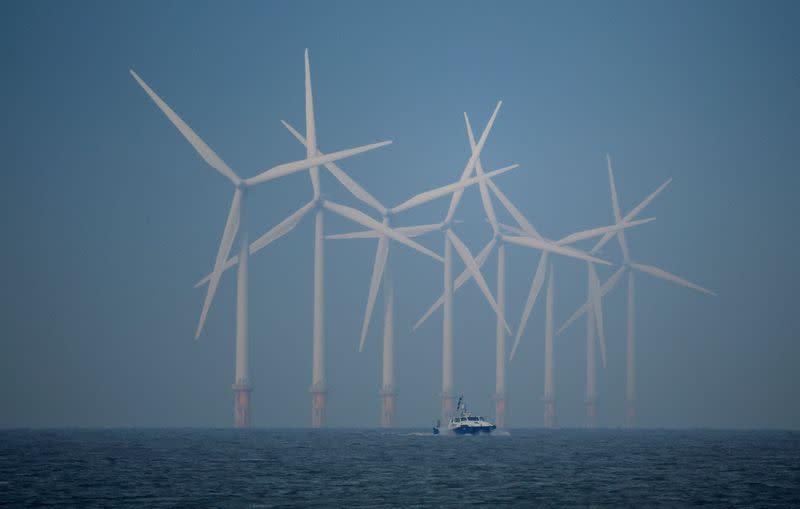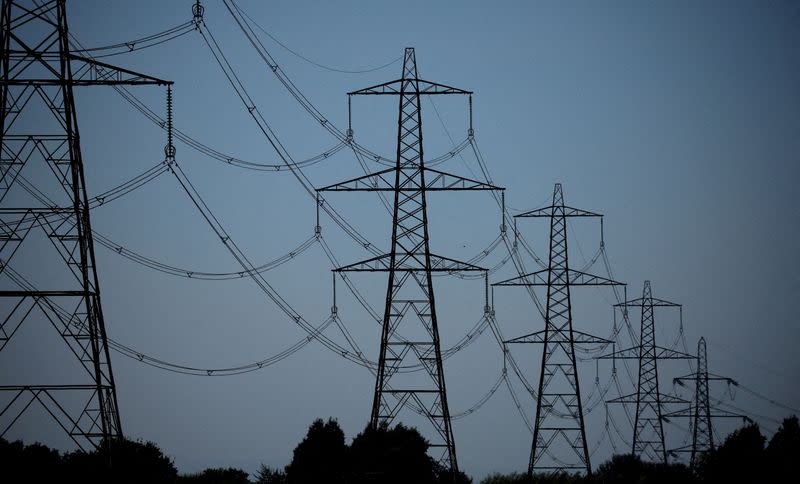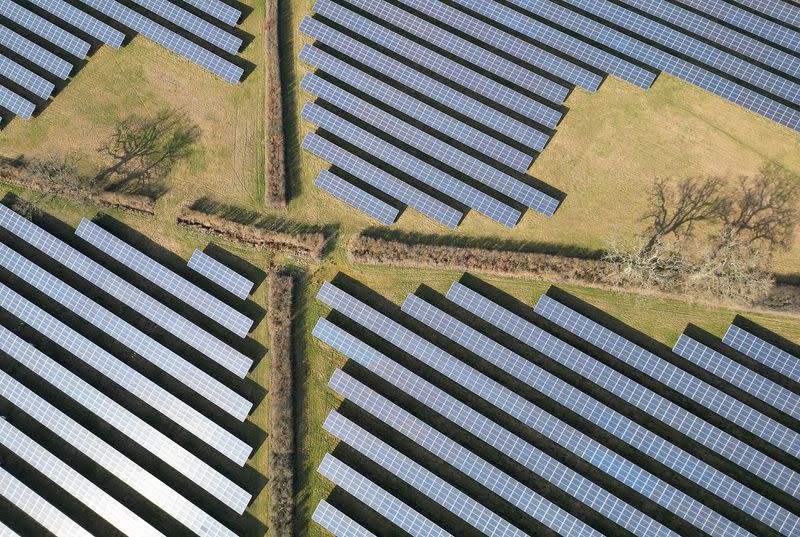Analysis-Industry fears EU carbon border tax will penalise British green energy
By Susanna Twidale and Kate Abnett
LONDON/BRUSSELS (Reuters) - British wind and solar farms exporting power to continental Europe could face CO2 fees from 2026 - even though they don't produce any emissions - unless the UK and European Union can agree changes around the EU's carbon border tax.
The charges, set out in a little-noticed clause of the CO2 levy law, could hit revenues of renewable energy projects in the UK, add to already-high EU power prices and even lead to higher emissions, industry sources and analysts told Reuters.
"It's a problem on both sides," said Adam Berman, deputy director of industry group Energy UK.
"(It) disincentivises clean power in the UK at the moment in which we're trying to ramp up provision of clean power, and it's going to increase (power) prices in northern Europe."
The Carbon Border Adjustment Mechanism (CBAM) will impose a CO2 emissions fee on imports to the EU of steel, cement, aluminium, fertilisers, electricity and hydrogen, unless the exporting nation has equal CO2 pricing policies.
Under its current design, the CO2 fee for power would be calculated using a default value based on average and historic power generation emissions. The British energy industry says that will unfairly penalise renewables.
"It is an issue that we are conscious of and one that we have raised, that the UK has raised, with the EU," Catherine Stewart, the UK Treasury's deputy director for trade policy, told an event in Brussels last month.
A European Commission spokesperson said it would continue talks with all countries, including the UK, on the design of the carbon levy before finalising its application from 2026.
The extra cost of the charge could make it uneconomic to export excess clean power from Britain to Europe at certain times when demand is weaker, renewables generation is high, and power prices are low, analysts said.
Analysis from Aurora Energy Research, shared with Reuters, showed as much as 3 gigawatt hours (GWh) of renewable power generation, enough to power up to 2,000 homes a year, could be curtailed by 2030 if the fee proves a disincentive to exporters.
"You are adding a tax on exporting, so this essentially reduces the profit margin every time you want to export," said Pranav Menon, GB Power & Renewables Lead at Aurora.
In 2030, the carbon border fee could knock 5% off the price British renewable projects can earn for their power, Aurora said.
Reduced access to cheap British electricity could increase wholesale power prices by up to 4% in markets like Ireland and Northern Ireland's Integrated Electricity Market which import a lot of power from the UK, the Aurora analysis showed.
If European countries boost coal and gas power generation to make up the shortfall, CO2 emissions could even rise - by as much as 13 million tonnes a year, equivalent to emissions of 8 million cars, an earlier analysis by AFRY suggested.
A European Commission spokesperson said renewable power exports will be able to avoid the CO2 fee if they can comply with certain criteria and prove their origin.
But industry figures say that could be tough.
"Most of the electricity (across interconnectors) is traded anonymously ... so it's almost impossible to demonstrate what that carbon content is," said Pieter-Jan Marsboom, products and services manager at UK-Belgian power interconnector Nemo Link.
UK ELECTION
British and EU diplomats have quietly begun discussing the issue, but the highly political nature of any post-Brexit deals between the two means no progress is expected before the UK general election on July 4.
Some industry groups are already in talks with the Labour Party, which polls suggest is on course to comfortably win the election, in the hope that it would push in government for a deal with Brussels on the CO2 levy.
The Labour Party did not respond to requests for comment.
One option would be to link the EU and UK carbon markets, exempting UK power producers from the tax.
"The best way to deal with the (CBAM), and to stop the UK exporters paying a tax to the EU that could otherwise go into the UK budget, would be by having (carbon market) linking," said UK power generator SSE'S Group Head of Policy and Advocacy Alistair McGirr.
So far, neither Brussels nor London has jumped at that idea.
Former UK climate change minister Graham Stuart told Reuters in March that the two sides could examine the possibility of linking under their post-Brexit Trade and Cooperation Agreement.
The European Commission spokesperson said the bloc is open to linking its carbon market with others, but this "must stem from a mutual wish from both parties".
"This remains to be explored," the spokesperson said.
(Reporting by Susanna Twidale in London and Kate Abnett in Brussels; Editing by Catherine Evans)

 Yahoo Finance
Yahoo Finance 


